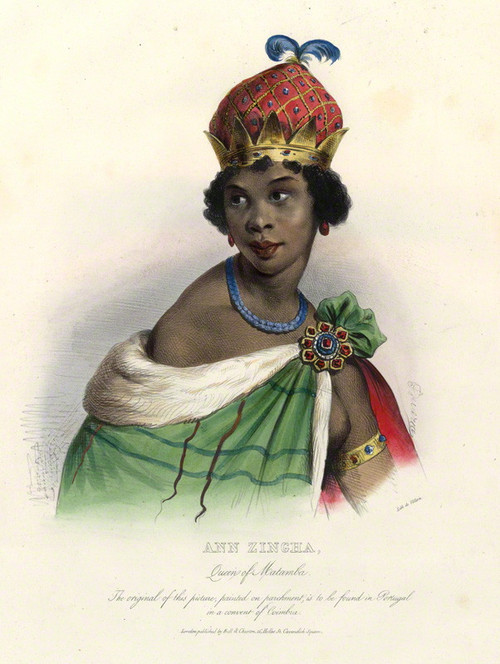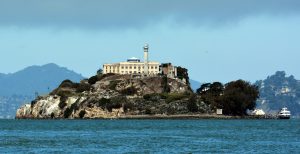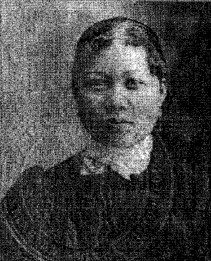Queen Njinga was the ruler of the Kingdom of Ndongo and the Kingdom of Matamba, a Queen of two nations, an enemy of the Portuguese, and a warrior to her people. Through a long-standing conflict between the Kingdom of Ndongo and the Portuguese, Queen Njinga dedicated more than half her life salvaging her kingdom from destruction. Her people were constantly attacked and lived in terror as the Portuguese invaded, and established a slave trade, and viciously murdered the population.1 Queen Njinga used amazing negotiation skills, acquired diplomacy knowledge, and utilized guerrilla warfare as a multifaceted approach to overthrow the Portuguese. Even though she fought fiercely and persistently for her people, she is scarcely mentioned in the pages of history. Countless books have been written regarding Queens of nations, but there is only one known book written in English about her life. Her story began in war.
In 1580, war broke out between the Ndongo and the Portuguese. There was bloodshed, and death lingered in the kingdom. Cries of innocent children being stripped away from their mothers and fathers, and being forced into cages that only led to death; it was an era of great anguish for the Ndongo people. Amidst this dark era, a new light shined in the kingdom, as a baby girl named Nzinga Mbandi was born. She was the daughter of King Kiluanji of Ndongo and what laid ahead was uncertain, due to her timing of birth. Legends say that when she was born, she had an umbilical cord wrapped around her neck. To the villagers, being born in such a way was a sign that that one would grow to become a powerful and proud person. Of course, Ndongo’s early years in a war-torn country led to a different kind of childhood. Instead of playing with children in the village, she attended diplomatic meetings with her father. Instead of getting to see the beautiful place she called home, she was forced to stay indoors as the outside was far too dangerous. With constant battles, Nzinga had to quickly learn how to survive and how to behave. This led her to grow up fierce, strong, and incredibly intelligent. Many viewed Nzinga Mbande as her father’s favorite. She was her father’s pride and joy, and throughout her childhood grew to understand the governance of the kingdom. She was able to witness her father take charge and protect his people. However, this favoritism did not go unnoticed.2
Disaster struck the kingdom in 1617, when her father died and the throne was given to the eldest, her cowardly brother Ngola. What created the depiction of him being cowardly was his incapacity to meet the expectations set by his family. He grew to be disrespected by the Portuguese government and his own people. This critique of him as a leader drove him mad. He felt paranoid that one day Nzinga’s only son would plot to have him assassinated. So instead, he ordered her son killed. He then forcibly had Nzinga sterilized, which ensured that she would never have a child again.3 He was seen as someone who didn’t have enough backbone to run a kingdom and he knew it himself. Everything he attempted failed, and he was viewed as a weak leader in the eyes of the Portuguese. Instead of creating diplomatic ties with the Portuguese, he waged war. He quickly scrambled together a large army to fight the Portuguese. Little did he know that the Portuguese also had plans to attack and conquer, and Ngola was no match.4 His war failed, as he couldn’t keep up with the constant attacks. Many lives were taken, villages burned, innocent children killed, and families torn apart. Due to high death tolls and Portuguese captives, the slave-trade became nearly impossible. As a result, Ngola decided to negotiate a peace treaty. Ngola knew that Nzinga was the only one who could negotiate this treaty, as she spoke fluent Portuguese. Nzinga was in pieces when she had heard the horrible stories that had happened to her people. This lead her to the decision to accept Ngola’s wishes and speak on his behalf.

This meeting became the most significant meeting in her life. Nzinga left for Luanda to negotiate the treaty with Dom João Correia de Sousa, the Portuguese Governor. She left with her head held high and pride running through her veins. On her journey she was engulfed with horror as she saw her people suffering. She watched, lost for words, as she saw them being sold into slavery.5 When she made her way to the room where negotiations would be made, she noticed there were chairs for the Portuguese individuals and only a mat provided for her. This type of behavior from the Portuguese was common; it was their way of displaying a “subordinate status, a status reserved for conquered Africans.” To subvert this disrespect, she had her maid be her chair while she spoke to the governor face to face. She made it clear to him that this was not a meeting where she would bow down to the Portuguese, but rather one where they would act as equals. This not only completed the task presented by her brother, but also enhanced her status. She wanted to be able to trade for firearms and other things necessary to strengthen her army. Unfortunately, she knew that the slave trade business would be the only way to eventually defeat the Portuguese and stop the over deportation of slaves. She negotiated to ship a certain amount of slaves to the Portuguese in exchange for firearms. Njinga knew that this would be the only way to stop slave trading of her people in the future. While the treaty was a success, it did require her conversion to Christianity, and she later changed her name to Anna de Sousa.6

This peace was short lived, as her brother had a sudden death. Her brother died of mysterious causes. Some accounts say that it was Nzinga who poisoned him.7 She wanted revenge for the death of her young child. Shortly after his death, the Portuguese went back on their agreement and declared war on Njinga as well as on other nearby tribes. This forced the new Queen to retreat and lead her people to the Kingdom of Matamba. Here she kidnapped Matamba’s Queen and army. From there, she made herself Queen and took over the kingdom. In the year 1641, Nzinga created an alliance between the Kingdom of Kongo and the Dutch.8 They had created this alliance with a vision of defeating the Portuguese and regaining the Kingdom of Ndongo, as well as protecting her people.
At this time, the Portuguese had continued to terrorize her land by developing headquarters in the town of Masangano. By the year 1644, she was able to conquer the Portuguese army that occupied Ngoleme. Unfortunately, this victory was short lived when she was unable to win the battle in Kavanga, the northern part of Ngondo.9 To make matters worse, her sister was captured by the Portuguese and, when they learned of her sister revealing valuable secrets to Nzinga, they killed her.10
Soon after, the Dutch, located in Luanda where Nzinga resided, sent reinforcements. Nzinga was able to track the Portuguese army and plan an attack. Despite her preparations, she was unable to defeat them. This led to the army then recapturing Luanda.11 She was determined to defeat the Portuguese and regain her land. She implemented guerrilla warfare on the Portuguese and fought fiercely for the next thirty years. In those thirty years, she created false alliances with neighboring kingdoms, used her mastered skill of negotiation with the Portuguese and Dutch, and offered protection for refugees who fled to her kingdom. Njinga’s negotiation skills were so successful because of her pride as well as her love for her culture and people. The clever use of her gender and her political understandings helped lay a foundation for future leaders of Ndongo today. She made it clear that she was not someone to mess with.
Queen Nzinga was willing to use her role as a woman as well as her role of the Queen of Ndongo. The humble beginnings of Nzinga’s guerilla tactics started in 1626, as Bento Cardoso, a leading general of Portugal, set out an army to defeat this troublesome queen.12 When the battle began, Nzinga had no allies that could help her. Even her closest supporters from her mother’s birth place of Pebo were imprisoned and sold into slavery. Not only was her army small, but as time progressed Cardoso gained more and more soldiers. Nzinga had begun to order trenches to be made around her island, created hidden caves, and stocked up on supplies to prepare her people for a potential long standing siege.13 She made sure that her army would be prepared and her communication with her army was impeccable. This led her to slowly become a political icon and fierce fighter. She never lost hope of regaining her land and knew deep in her heart that Ndongo would soon be returned. Her vision soon turned to reality when Salvador Correia, who was new to the land, realized that he could do nothing against this highly regarded fierce Queen, who by now was more than 70 years of age. The Portuguese then had decided to give up their claims to Ndongo and the land was returned to its rightful owner through a treaty ratified in Lisbon by King Pedro VI on November 24 1657.14
She then spent the rest of her days rebuilding her once lost kingdom. She will be remembered as the Mother of Angola, the fighter of negotiations, and the protector of her people. She is still honored throughout Africa as a remarkable leader and woman.

- Linda M. Heywood, Njinga of Angola: Africa’s Warrior Queen (Cambridge, Massachusetts: Harvard University Press 2017), 1. ↵
- Linda M. Heywood, Njinga of Angola : Africa’s Warrior Queen (Cambridge, Massachusetts : Harvard University Press, 2017), 56, 57, 58, 80-81. ↵
- Linda M. Heywood, Njinga of Angola : Africa’s Warrior Queen (Cambridge, Massachusetts : Harvard University Press, 2017., 2017), 50; “Njinga Mbandi: Queen of Ndongo and Matamba,” UNESCO Digital Library (website), accessed April 4, 2019, https://unesdoc.unesco.org/ark:/48223/pf0000230103; “Nzinga of Ndongo and Matamba . ↵
- Linda M. Heywood, Njinga of Angola : Africa’s Warrior Queen (Cambridge, Massachusetts : Harvard University Press, 2017., 2017), 44-46. ↵
- Linda M. Heywood, Njinga of Angola : Africa’s Warrior Queen (Cambridge, Massachusetts : Harvard University Press, 2017., 2017), 50; “Njinga Mbandi: Queen of Ndongo and Matamba,” UNESCO Digital Library (website), accessed April 4, 2019, https://unesdoc.unesco.org/ark:/48223/pf0000230103; “Nzinga of Ndongo and Matamba . ↵
- Linda M. Heywood, Njinga of Angola : Africa’s Warrior Queen (Cambridge, Massachusetts : Harvard University Press, 2017., 2017), 61-62. ↵
- Christine Saidi, “Njinga of Angola: Africa’s Warrior Queen,” Early Modern Women: An Interdisciplinary Journal 13, no. 1 (Fall 2018): 183–85. ↵
- Pat Masioni et al., “Njinga Mbandi: Queen of Ndongo and Matamba,” UNESCO Digital Library (website), accessed May 8, 2019, https://unesdoc.unesco.org/ark:/48223/pf0000230103. ↵
- Ubani Lumumba, Afrikan Mind Reconnection & Spiritual Re-awakening ( Bloomington, IN: Xlibris Corporation, 2011), 371-372. ↵
- Pat Masioni et al., “Njinga Mbandi: Queen of Ndongo and Matamba,” UNESCO Digital Library (website), accessed May 8, 2019, https://unesdoc.unesco.org/ark:/48223/pf0000230103. ↵
- Ubani Lumumba, Afrikan Mind Reconnection & Spiritual Re-awakening (Bloomington, IN: Xlibris Corporation, 2011), 372. ↵
- Linda M. Heywood, Njinga of Angola : Africa’s Warrior Queen (Cambridge, Massachusetts : Harvard University Press, 2017., 2017), 55-56. ↵
- Linda M. Heywood, Njinga of Angola : Africa’s Warrior Queen (Cambridge, Massachusetts : Harvard University Press, 2017., 2017), 80. ↵
- “Njinga Mbandi: Queen of Ndongo and Matamba,” UNESCO Digital Library (website), accessed April 4, 2019, https://unesdoc.unesco.org/ark:/48223/pf0000230103 ↵



113 comments
Adelina Wueste
This article provided great information on a truly inspiring story. It is very interesting to see how Queen Nzinga’s upbringing in conflict lead her to become such a strong and powerful woman. I found it very intriguing when you explained how when Queen Nzinga met with the Portuguese, they had chairs for themselves but only had a mat for the queen. Queen Nzinga’s response to the Portuguese was a very powerful move. Rather than just submitting to the Portuguese, Queen Nzinga asserted her power. Queen Nzinga was truly a powerful woman who asserted herself when necessary and lead her people to freedom.
Noelia Torres Guillen
This was an informative and interesting article about a Queen who’s story and efforts are often left untold. It is pretty clear that because she grew up in war and was by her fathers side, she developed an understanding on how to govern and lead a kingdom. Her brother failed in many ways she succeeded and this included creating alliances, negotiations, and military tactics. She is an inspirational leader who cared deeply for her people and kingdom.
Sofia Perez
Hi Rosario, loved your article. Different than most kids, when Nzinga was young she would follow her father and attend diplomatic meetings with him. I found it interesting, how involved she was with her kingdom even before she became queen. She made a treaty with the Portuguese, but once her brother died the Portuguese soon after broke it. Nzinga is an icon who put her people first and used her brilliance to negotiate alliances and treaties with other countries.
Jose Maria Gallegos Cebreros
First of all congrats on your great article, I enjoyed reading it a lot. I was not familiar with nothing related to the history of Angola. I never knew that there was successful women at that time in Africa. Even without having previous knowledge about it, your article was very easy to digest and I got a lot of information from it. Well done!
Luke Rodriguez
This was a very interesting article about someone who isn’t that known. I had recently heard about this person in the class. However, this article really helped me learn more about Nzinga Mbande. Something that I really enjoyed was that the article was able to keep me hooked, and I really understood what I was reading. I also really found her back story to be really interesting.
Gabriella Parra
It’s amazing how powerful Queen Nzinga was and that, in her culture, her birth predicted this power and stature. I wonder how her education growing up differed from her brother’s education. Especially since she was called her father’s favorite. I wonder what privileges this brought her despite her gender. Also, I’d like to learn more about how her culture treated those of different genders, seeing that her son would have ascended to the throne before she did.
Lucia Rogel
This article is an excellent introduction to African politics and war history. I learned much from how this queen obtained her reign to her last works. It is not expected that the peoples during her period regained their land once the Portuguese, Spaniards, and other Europeans became involved. Because of that, I am surprised that Queen Nzinga was able to reunite her people with their land. Despite that, this story is well-presented, with just enough details to understand the queen’s version of events. While her behavior while meeting with the Portuguese on behalf of the former king may not be relevant in the general history of the events, it is a powerful move that requires plenty of courage. Understanding this from a group of people who are almost always seen as victims of the horrors of slavery, it’s nice to learn that these peoples were more than ever just slaves.
Anayetzin Chavez Ochoa
It’s always enlightening to see a lady in power throughout history. But History is always written by the winners. Interesting to see that a legend formed from the culture’s belief in how certain children are born. It’s also CRAZY to see such people in power grow paranoid like her brother. I adore that she made her maid become a chair in order to prove a point! What a power move! Thank you for providing such an amazing article about a powerful woman in history! This was inspiring and I enjoyed it!
Anna Steck
This article was interesting because it focused on a figure and a story that are usually told from another perspective. We so often hear about how the transatlantic slave trade was started and the suffering that they experienced after reaching the Americas. This showed a complex story of resistance. The African people fought back and did not go willingly. They weren’t perfect people and had some of the same conflicts that come with monarchies. I was a little shocked at the queen using her maid as a chair for example and the families killing their descendants and things like that. I found it very interesting and powerful to read in detail that other perspective.
Jaedon E
Awesome story! I love the in-depth descriptions of what she had to endure throughout her life as well as her mission of regaining her land back. What I did find interesting was how her child was killed but yet she went back to help her brother after what he had done. She was indeed a fearless and religious-driven Queen that ultimately regained conquest to secure her land and protect her people.